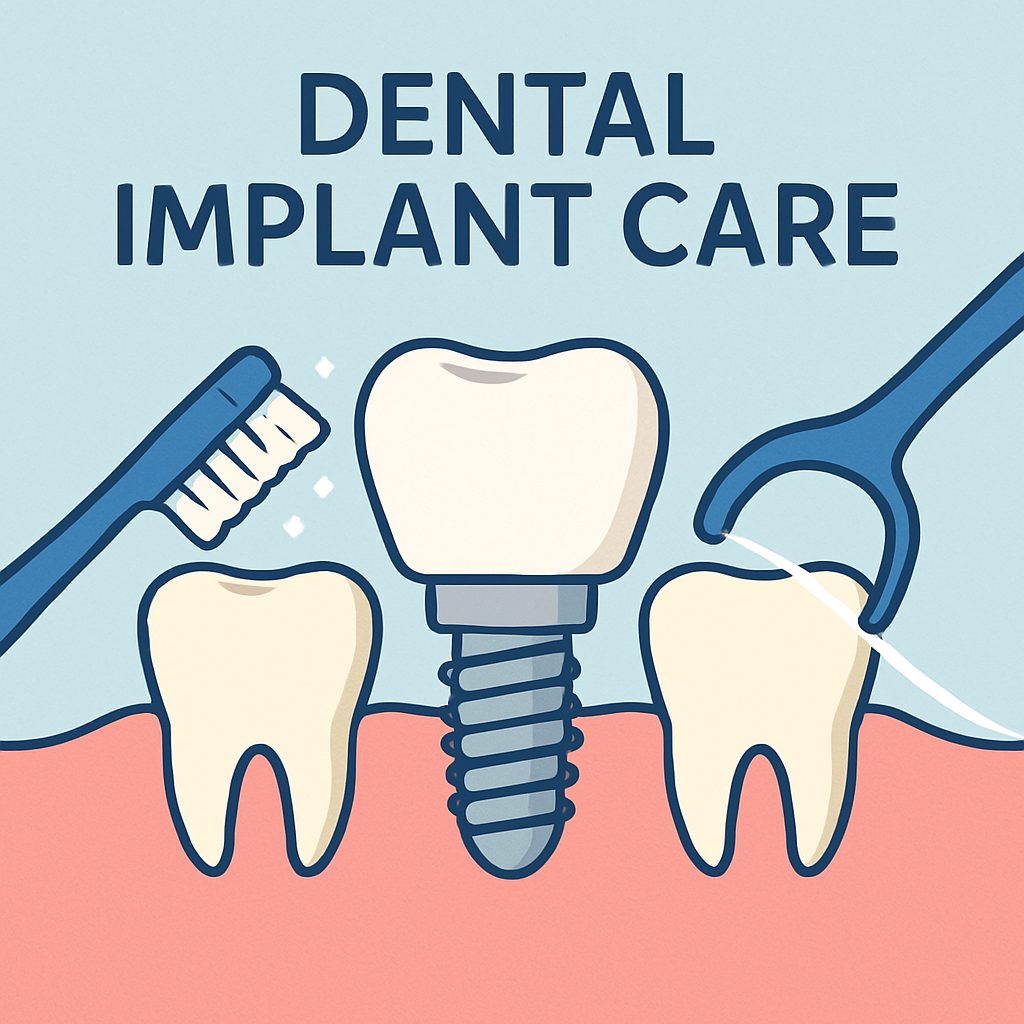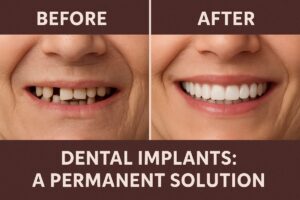This guide explains the basics of dental implant care for anyone with new or existing implants. You’ll learn daily routines, what to avoid, when to see your dentist, and simple long-term habits that help implants last. This page covers practical steps for reliable care, including how to make dental implant care part of your normal routine.
Why dental implant care matters
Daily care protects the implant, the bone that supports it, and the gums around it. Good habits lower the risk of infection and help implants last decades; poor care can lead to peri-implantitis, bone loss, and implant failure. Regular maintenance sets clear expectations: implants need the same attention as natural teeth plus some extra checks.
Daily oral hygiene routine for dental implant care
Brushing: tools and technique
Use a soft-bristled manual brush or an electric toothbrush and brush twice a day. Angle the brush slightly toward the gum line and use gentle, short strokes around the implant crown to remove plaque without damaging soft tissue.
Flossing and interdental cleaning
Use implant-safe floss, interdental brushes, or a water flosser to clean between implants and adjacent teeth. Work gently to remove plaque along the gum line and under prosthetic bridges or bars; regular cleaning prevents buildup that leads to inflammation.
Rinses and products to consider
Antimicrobial mouthwashes and non-abrasive toothpastes can help control bacteria. Avoid strong, alcohol-based rinses if your dentist advises against them, and ask which products are best for your specific implant type and restoration.
What to avoid to protect your implants
Avoid smoking, chewing hard objects (ice, hard candy), and using your teeth as tools. If you grind your teeth, ask about a nightguard to reduce wear and implant stress. For hard foods, cut them into smaller pieces and chew carefully on the opposite side if needed.
Professional care: schedule and what to expect
Plan dental visits every 3–6 months at first, then follow your dentist’s recommendation. Professional exams include x-rays and cleanings using special, non-scratching instruments made for implants. Hygienists and dentists will check the implant, surrounding bone, and soft tissue for early signs of issues.
Warning signs and when to contact your dentist
Contact your dentist promptly if you notice persistent pain, swelling, pus, a loose restoration, or a sudden change in bite. Early evaluation can stop small problems from becoming bigger complications.
- Ongoing pain or pressure around the implant
- Red, swollen, or bleeding gums that don’t improve
- Drainage or bad taste that suggests infection
- Movement or loosening of the implant or crown
Long-term habits for lasting implants
Maintain a balanced diet, control systemic conditions such as diabetes, and avoid tobacco to support bone and gum health. Keep consistent checkups, monitor any changes around the implant, and follow your dentist’s personalized plan to protect your investment.
How our office supports your dental implant care
At Sedation & Implant Dentistry we offer follow-up programs, custom hygiene plans, nightguard fittings, and help with financing to make long-term care manageable. Dr. David Painter and the team provide gentle, expert support for dental implant care in Fort Wayne and Auburn, IN — schedule a maintenance visit to keep your implants healthy and lasting well.






